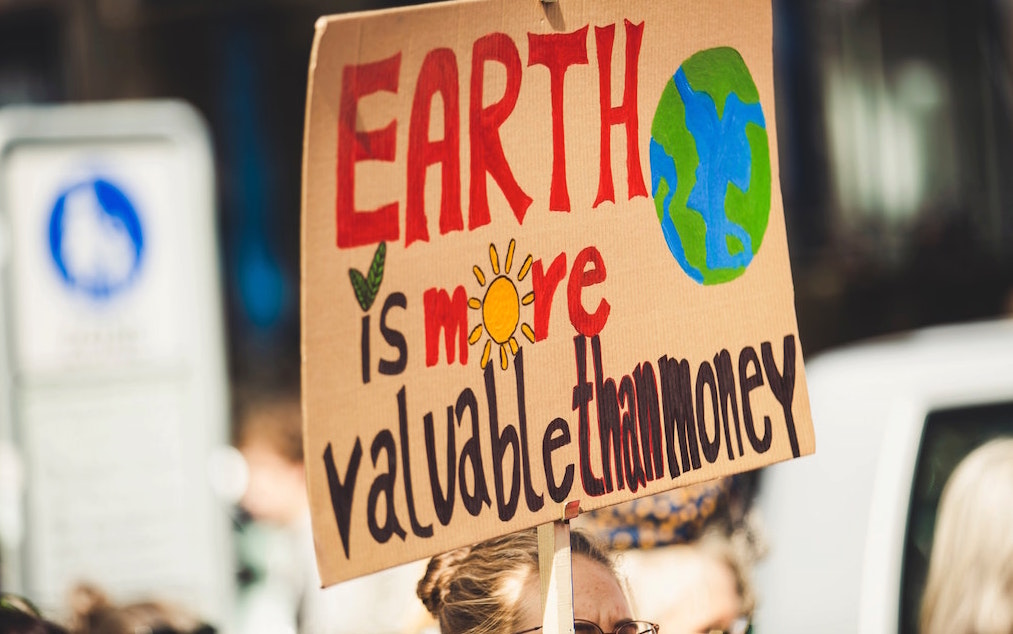The 2018 special report of the Intergovernmental Panel on Climate Change (IPCC), titled “Global Warming of 1.5 degrees Celsius,” sparked a groundswell of protests and political action around the world.
Learning that limiting global warming to 1.5 degrees Celsius meant lowering net carbon emissions from 2010 levels by 45 per cent globally before 2030 — and then to zero net emissions by 2050 — was eye-opening for many, though the report followed decades of scientific findings that pointed to the looming catastrophe.
Nonetheless, climate activists who went looking for allies in the governments of the U.S., France, Germany, the U.K. and Canada were disappointed.
At a moment when the world needs the major Western liberal democracies to pivot away from business as usual and align themselves with those fighting to reduce greenhouse gas emissions, it is not happening.
The electoral democracies in these countries have shown themselves incapable of responding to the emerging peaceful revolution as millions call for action on climate change.
At the intersection of pending climate change disaster, environmental destruction, and growing disparities of wealth and income is fossil-fuel capitalism, still protected by Western liberal democracies.
Caught up in their struggle to attain or hold on to power, political parties are reacting to what they think matters for the next election campaign — and ignoring issues that matter for the future of humanity, including ensuring that the future includes a liveable planet.
Instead of doing everything in their power to respond to the needs of the ecological activists, governments are content to make soothing noises, thinking that is all they need to do in order to succeed electorally.
Government thinking in the electoral democracies is dominated by what philosophers call “instrumental reason,” focusing on the means (getting elected) to the neglect of the ends (serving the people).
The U.K. has an expression: “elect good chaps to get good government.”
Democratic duty is limited to citizens voting for a representative. Once elected, those representatives will look after public affairs, the thinking goes, without large-scale citizen participation or input.
It is understood that citizens should stay abreast of issues, but active citizen engagement in the political process is not part of what is expected.
Modern liberal democracies provide little space for open public debate. Nowhere is broad-based citizen discussion central to the political process.
Leaving politics up to the politicians hasn’t been working out too well of late.
Whether they be left or right, nominally liberal, conservative or socialist, political parties across the West are subject to the “iron law of oligarchy.”
Instead of reflecting a broad, engaged membership, the parties shrink into small bodies of insiders wielding power.
The electoral process today resembles a shopping experience. Parties present their program by “putting something in the window.”
Leaders are the highly visible CEOs, judged by their appearance and likeability.
When the idea is not to offend or scare off voters, political parties stay away from addressing controversial issues like growing inequalities or looming climate disaster, either during election campaigns or when exercising power.
The result is that growing numbers of citizens feel abandoned by their governments.
This is particularly true of working-class people. When social democratic governments and parties discovered they needed to defend neoliberal reductions in government spending in order to maintain “credibility,” they abandoned their constituency.
Not necessarily neglected, but never championed by liberals or conservatives, for socialists the working class was the central actor in a democratized economy.
Today the working class is turning to the right-wing populism of a Donald Trump or his imitators, and in France to Marine Le Pen, which has caught the attention of liberal, conservative, and social democratic parties alike.
Growing in numbers and activities, the peaceful revolutionaries are stuck trying to figure out how to bring elected politicians to see the folly of not recognizing the need for dramatic change.
Proposing cross-party coalitions around a program featuring commitments to green jobs, public investment in infrastructure renewal, phase-out of fossil fuels, and strict environmental regulations is the obvious strategy.
Given the strength of populist reactionaries, the dominant parties may be forced into coalitions if only to prevent losing numbers and influence in the political world.
Duncan Cameron is president emeritus of rabble.ca and writes a weekly column on politics and current affairs.
Image credit: Markus Spiske/Unsplash



